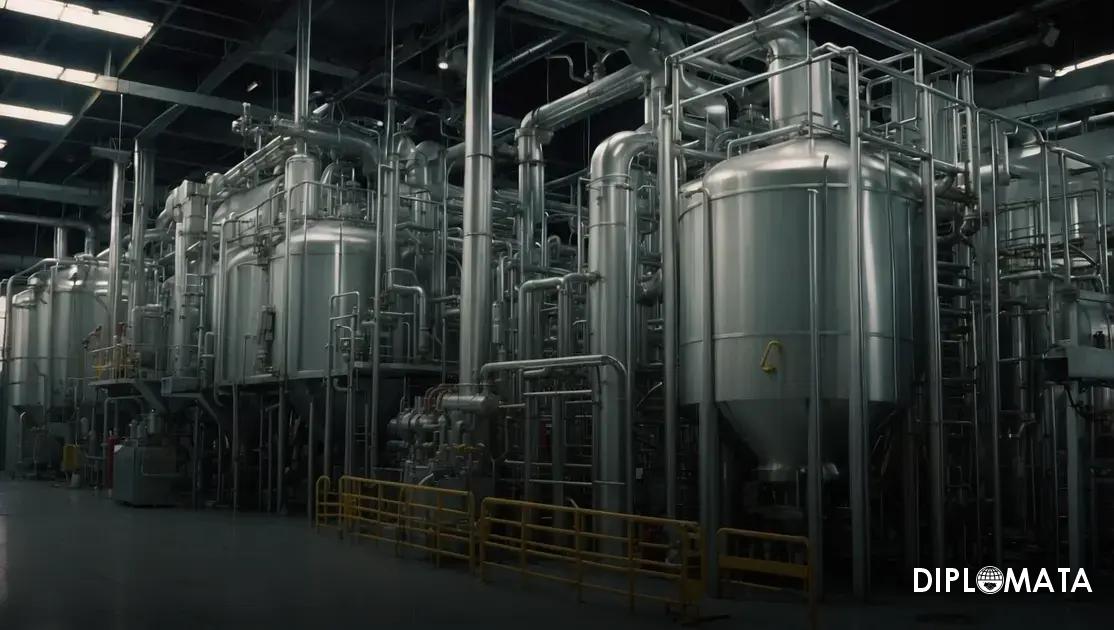How to train staff on quality control procedures for chemicals? This process involves educating employees on the standards, practices, and techniques necessary to ensure chemical products meet quality specifications and safety regulations.
How to train staff on quality control procedures for chemicals? This is a crucial question for companies aiming to maintain high standards in chemical production. In this post, you will uncover effective strategies for training your staff, ensuring compliance with safety regulations and enhancing product quality.
Prepare to dive into best practices that not only improve employee knowledge but also foster a culture of quality within your organization. By the end of this article, you will have actionable insights to implement a comprehensive training program that elevates your quality control processes.

How to Train Staff on Quality Control Procedures for Chemicals?
In today’s competitive chemical industry, ensuring that your staff is well-trained in quality control procedures is not just beneficial; it’s essential. With the ever-increasing demand for high-quality products, companies must prioritize comprehensive training to maintain their competitive edge. This article will guide you through the crucial aspects of training your staff effectively on quality control procedures for chemicals.
Foundational Concepts and Definitions in Quality Control
Understanding chemical quality control begins with grasping some fundamental concepts. Quality control (QC) refers to the processes and procedures that ensure the products meet the required standards before they reach the market. Key terms include:
- Quality Assurance (QA): A proactive process that focuses on the quality of the processes used to create products.
- Standard Operating Procedures (SOPs): Detailed, written instructions to achieve uniformity in the performance of specific functions.
- Compliance: Adhering to regulatory standards and internal protocols.
These foundational concepts not only underpin effective training programs but also support a culture of quality within your organization.
The Importance and Advantages of Quality Control Training
Training staff on quality control procedures is critical for several reasons:
- Improved Product Quality: Well-trained employees are more capable of identifying defects and inconsistencies, leading to higher quality products.
- Regulatory Compliance: Proper training ensures that all procedures comply with applicable regulations, reducing the risk of costly fines and legal issues.
- Enhanced Operational Efficiency: Streamlined QC processes result in less waste and more efficient production timelines.
By prioritizing quality control training, companies can foster a culture of excellence and reliability.
Key Criteria for Evaluating Quality Control Training Programs
Selecting the right training program is vital. Here are some criteria to consider:
- Relevance: Ensure the training aligns with your specific industry needs, particularly regarding AMINAS suppliers.
- Comprehensiveness: A good program should cover all aspects of quality control procedures.
- Delivery Methods: Look for programs that utilize various teaching methods (e.g., hands-on training, online courses).
- Qualifications of Trainers: Trainers should have relevant experience and a proven track record in chemical quality control.
Evaluating these criteria will help your company make informed decisions about training investments.
Step-by-Step Guide to Implementing Quality Control Training
Implementing effective quality control training involves a structured approach:
- Assess Training Needs: Identify the specific knowledge gaps among staff regarding QC procedures.
- Develop Training Materials: Create or source comprehensive training materials that cover all necessary topics.
- Conduct Training Sessions: Organize engaging training sessions that facilitate learning and retention.
- Evaluate Effectiveness: After training, assess its impact on product quality and staff performance.
Advanced Tips and Best Practices for Effective Training
To further enhance your quality control training, consider these advanced tips:
- Interactive Training Methods: Incorporate role-playing and simulations to make learning more engaging.
- Continuous Learning Opportunities: Encourage ongoing education through workshops and refresher courses.
- Leverage Technology: Use online platforms and software to facilitate training and track progress.
Common Pitfalls in Quality Control Training and How to Avoid Them
Be aware of common mistakes in training:
- Inadequate Training Resources: Ensure that training materials are up-to-date and comprehensive.
- Lack of Follow-Up: Implement follow-up sessions to reinforce learning and address new challenges.
- Failure to Adapt: Regularly update training programs to reflect evolving industry standards and practices.
Avoiding these pitfalls will help ensure the success of your training initiatives.
Conclusion
In conclusion, training staff on quality control procedures for chemicals is a vital investment in your organization’s future. By understanding foundational concepts, evaluating the right training programs, and implementing best practices, you can enhance product quality and operational efficiency. Take action today to establish a robust quality control training program.
Our Expertise in Chemical Quality Control
This content reflects deep expertise in the chemical market, built over two decades. As specialists in Glycerin Manufacturing, with our own factory and a reputation as a renowned supplier, we are positioned as a trusted source on How to train staff on quality control procedures for chemicals?.
Our Location: Av. Ipanema N° 165 – Empresarial 18 do Forte, Barueri – SP. CEP: 06472-002
Frequently Asked Questions
What are the key components of quality control training for chemicals?
Key components include understanding chemical properties, safety protocols, proper handling techniques, testing methods, and documentation processes. Training should also cover the importance of compliance with regulations and standards, as well as practical exercises to reinforce learning.
How often should staff undergo quality control training?
Staff should undergo quality control training at least annually, with refresher courses every six months. Additionally, training should occur whenever there are updates to procedures, new equipment, or changes in regulations to ensure ongoing compliance and effectiveness.
What methods can be used to train staff on quality control?
Effective training methods include classroom instruction, hands-on workshops, e-learning modules, and on-the-job training. Utilizing a mix of these approaches can cater to different learning styles and enhance retention of quality control procedures.
How can I assess the effectiveness of quality control training?
Assess effectiveness through quizzes, practical assessments, and feedback from participants. Additionally, monitoring performance metrics, such as error rates and compliance with procedures, can provide insight into the training's impact on quality control outcomes.
What should be included in a quality control training manual?
A training manual should include an overview of quality control principles, detailed procedures for handling chemicals, safety guidelines, testing methods, regulatory compliance information, and troubleshooting tips. Clear illustrations and examples can enhance understanding.





